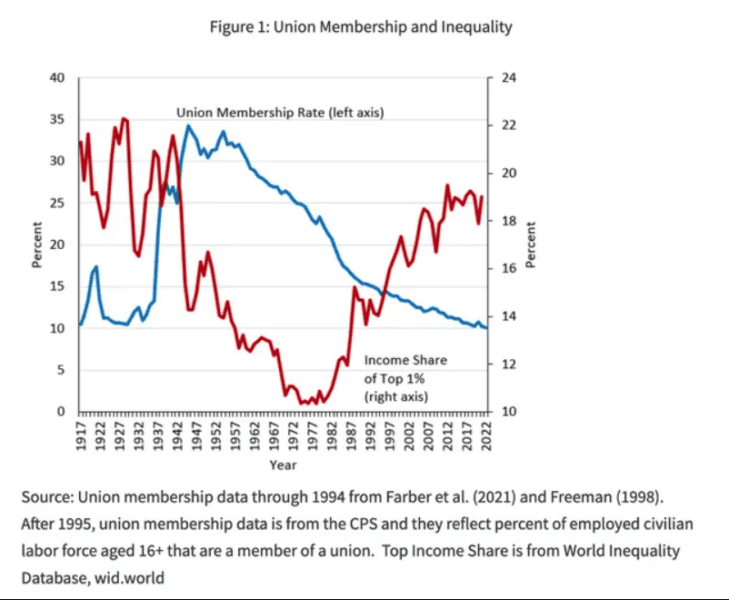
A report released Monday by the U.S. Treasury Department argues that labor unions are critical to combating income inequality, which has risen dramatically in recent decades as union membership has declined and real wages have largely stagnated.
The report estimates that unions boost the wages of their members by between 10% and 15%, an impact that spreads to the broader economy as nonunion workplaces compete for employees.
“Unions also improve fringe benefits and workplace procedures such as retirement plans, workplace grievance policies, and predictable scheduling,” the report notes. “These workplace improvements contribute substantially to middle-class financial stability and worker well-being. For example, one study has estimated that the average worker values their ability to avoid short-notice schedule changes at up to 20% of their wages.”
In a summary of the report’s findings, Treasury Department economist Laura Feiveson wrote that “increased unionization has the potential to contribute to the reversal of the stark increase in inequality seen over the last half-century.”
“All in all, the evidence presented in Treasury’s report challenges the view that worker […]









A wonderful and accurate article. It is surprising that such a statement would come from an official government source as the Federal Government by policy and behavior has been anti-union since Ronald Reagan fired all of the Air Traffic Controllers in 1980. I would be interested in watching the career of the official who authored the document to see if such truth telling will harm her career,
As the article states: “A report released Monday by the U.S. Treasury Department argues that labor unions are critical to combating income inequality, which has risen dramatically in recent decades as union membership has declined and real wages have largely stagnated.” It is important to realize that this pattern is paralleled with the take over of neo-liberal economics within the halls of power demonstrating resilience for failed policies under democratic and republican administrations. This pattern of union and wage suppression tied to increased corporate profit is a feature of the system, not a bug.